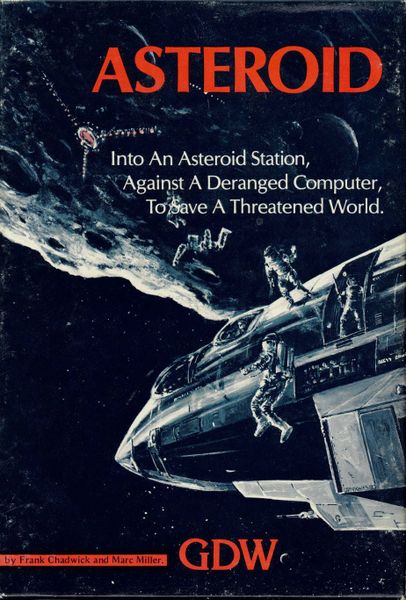Asteroid (1980) Board Game
Asteroid is a board game that was released in 1980 by Game Designers’ Workshop (GDW Games). It is a science fiction adventure wargame designed by Frank Chadwick and Marc W. Miller. The game is set in outer space, where players take on the roles of rival space miners competing to collect resources from asteroids. With its unique theme and gameplay mechanics, Asteroid has gained a cult following among board game enthusiasts over the years.
Game Components of Asteroid
How To Setup Asteroid
Setup involves the Brain player arranging the eight maps into two levels, each with its own layout. The Brain places various counters such as robots, collapsed corridors, and useful items in specific sections. The expedition player selects the characters for the mission. The Brain has control over the placement of most counters, especially in the third group, which includes miner robots and computer terminals. Setup can take around 15 minutes for an experienced player but may extend to an hour for beginners.
Gameplay Mechanics and Game Objective
– Turn sequence: Move, then fight (ranged attacks followed by melee)
– Combat resolution: Roll 1d6 for ranged attacks and kill numbers; melee combat is resolved based on the differential between the combatants’ melee stats
– Exploration: Heroes navigate through the asteroid’s levels, discovering new areas and encountering dangers
– Character abilities: Each character has unique skills and luck points
– Time pressure: The game has a time limit, adding urgency to the mission.
Player Experience
Playing Asteroid can be a thrilling and tense experience, especially with the time pressure of saving Earth. The game features a strong narrative and distinct characters, each with their own challenges and abilities. The setup and exploration phases require strategic planning, and the combat mechanics add a layer of unpredictability. The game’s theme of a space dungeon crawl is unique and engaging, making it a fun experience for fans of sci-fi and AmeriTrash games.
Pros
Cons
Personal Thoughts on Asteroid
Asteroid is a game for those who enjoy complex, thematic board games with a strong narrative. It’s ideal for fans of sci-fi and AmeriTrash games who don’t mind investing time in setup and learning the rules. The game’s unique blend of exploration, combat, and character management makes it a standout in the 1980s board game landscape. However, it may not be the best choice for casual gamers or those looking for quick, light-hearted gameplay.
We are supported by our audience. When you purchase through links on our site, we may earn an affiliate commission, at no extra cost for you. Learn more.

